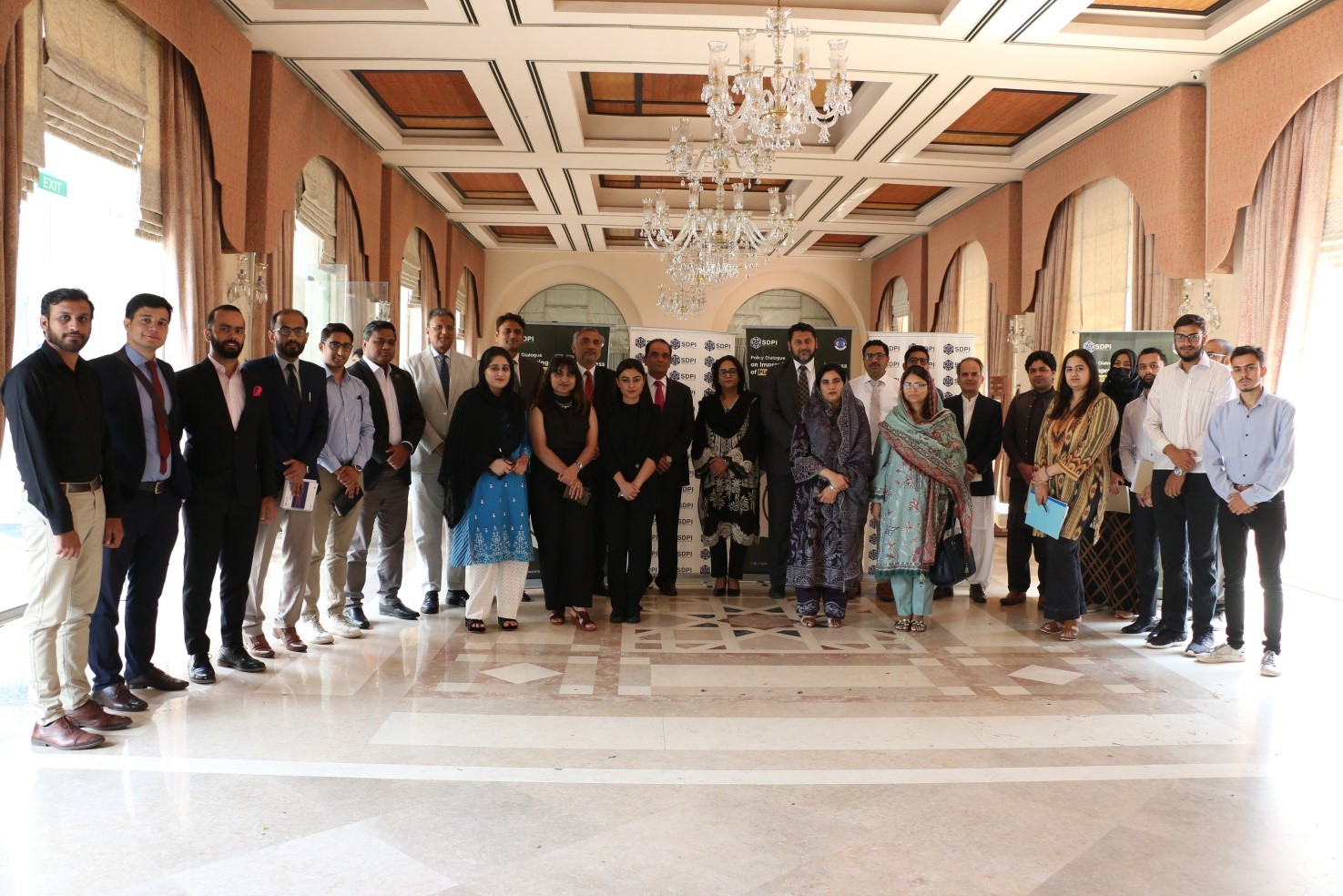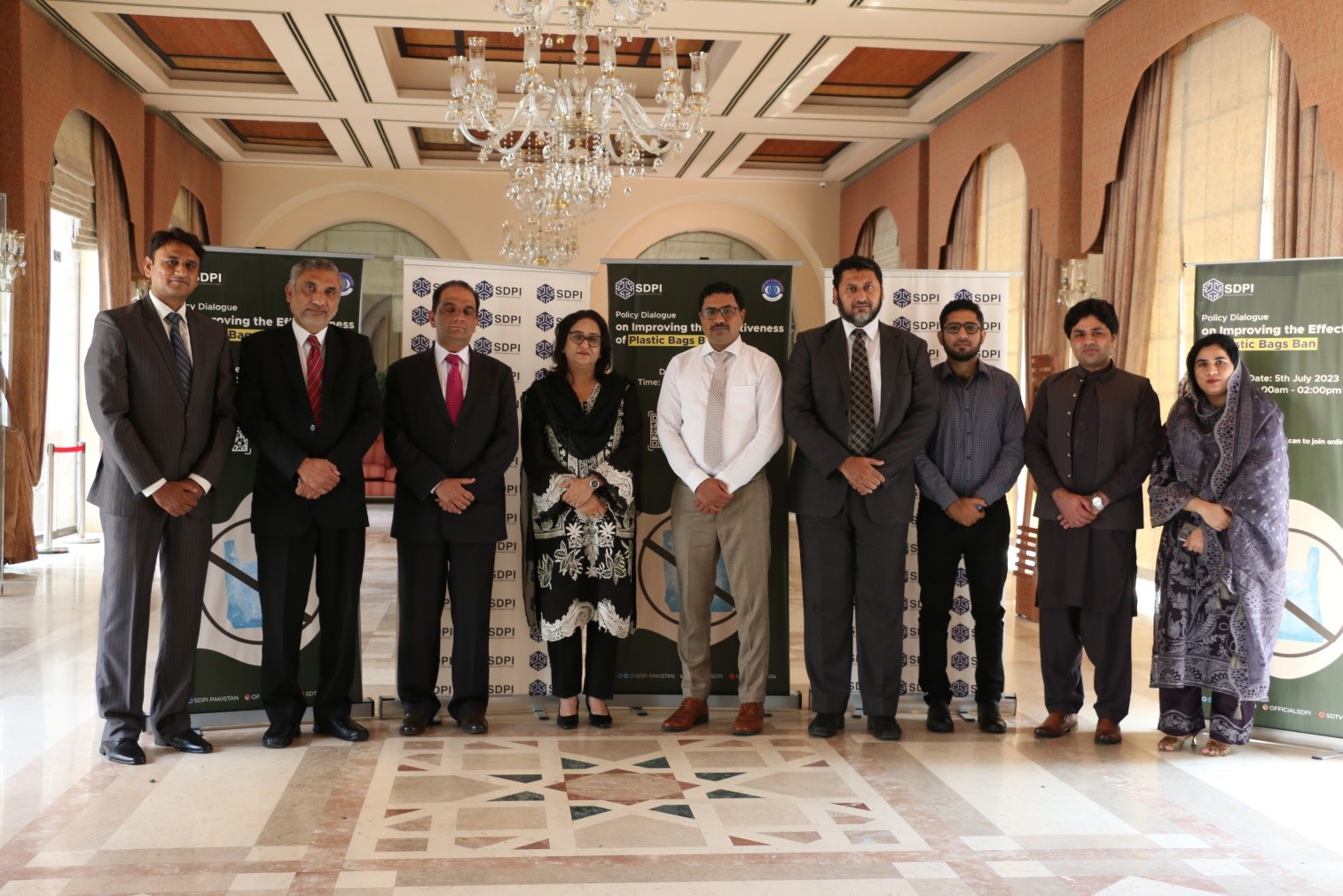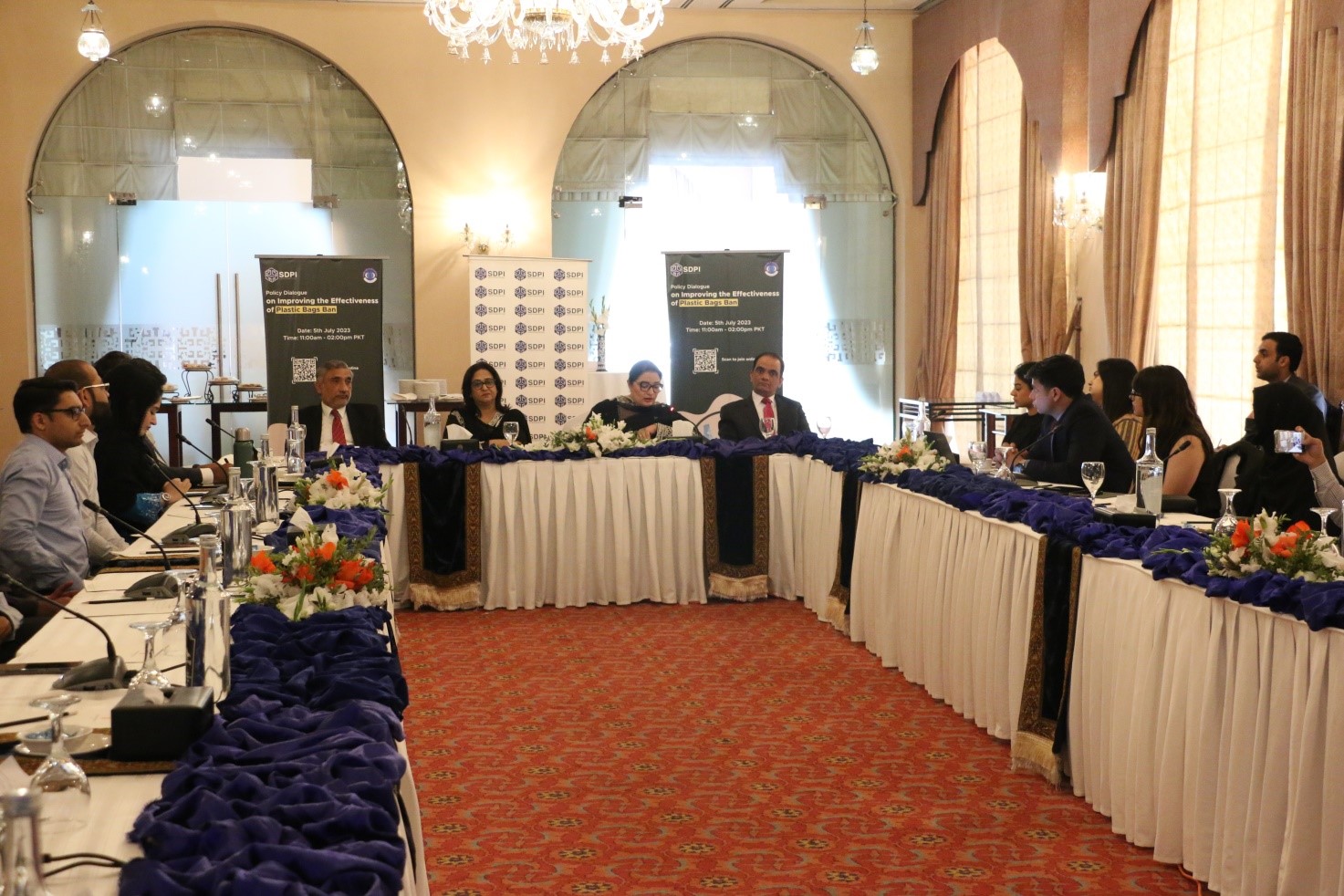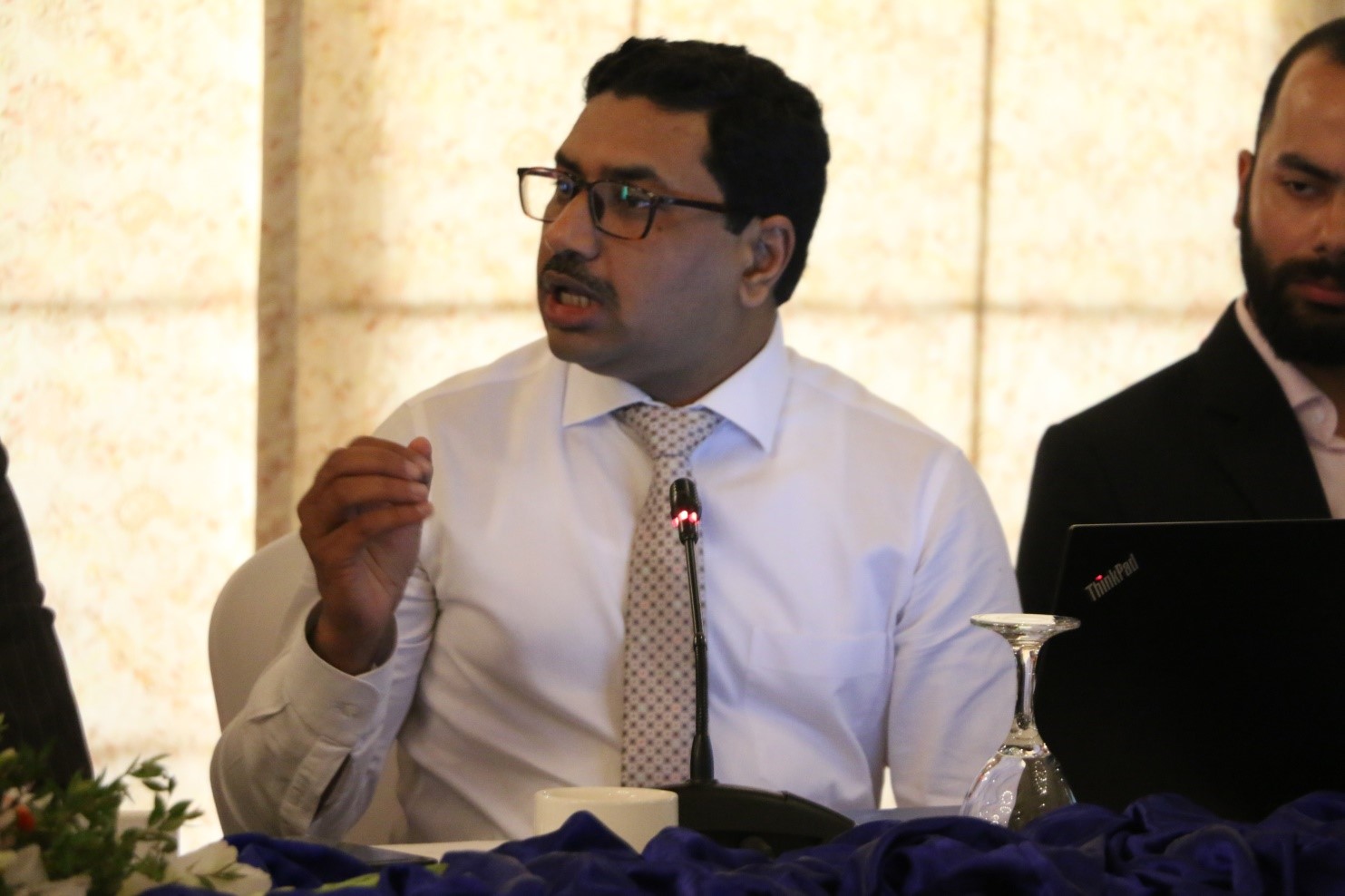Policy Dialogue on Improving the Effectiveness of Plastic Bags
COMSATS University Islamabad, Lahore Campus in collaboration with Sustainable Development Policy Institute (SDPI), organized a policy dialogue on improving the effectiveness of plastic bag bans in Pakistan .
Structure of the Policy Dialogue:
The session commenced with a warm welcome from the Director of COMSATS University, Professor Asad Hussain, followed by a technical presentation by Dr. Muhammad Khan, an Associate Professor at COMSATS University Islamabad. Subsequently, Ms. Romina Khursheed, an MNA (Member of the National Assembly and special Assistant to Prime Minister on SDGs), delivered a keynote address. Special remarks were then offered by Ms. Farzana Altaf, the Director-General of Pakistan EPA. The discussion was skillfully moderated, and representatives from various development partners shared their valuable insights on the effectiveness of plastic bag bans in Pakistan. Finally, the session concluded with closing remarks from Dr. Abid Qaiyum Suleri, the Executive Director of SDPI.
Objective of the Policy Dialogue:
The main objective of this collaboration was to share the research findings and gather valuable feedback, insights, knowledge, and expertise from key stakeholders on the joint effort between researchers from COMSATS University Islamabad (CUI) and the Sustainable Development Policy Institute (SDPI), to examine methods that could enhance the implementation of the plastic bags ban in Islamabad Capital Territory (ICT).
Discussion
While presenting the findings of the study conducted by COMSATS on plastic bags ban, it was highlighted that the enforcement of the ban remains a big challenge and the success of ban is diluting from 90% to around 20%. It was also emphasized that addressing the plastic waste problem requires a comprehensive economic and regulatory framework. In the absence of such a framework, the study suggests that fragmented policies can be enhanced with soft policy tools to achieve improved outcomes. Additionally, the study highlighted the importance of the Environmental Protection Agency (EPA) receiving support from the research community and stakeholders to continue their much-appreciated efforts in enforcing the ban in a more effective and coordinated manner.
The participants, while commenting on the research that was conducted, mentioned that the most significant challenge in managing plastic waste, particularly single-use plastic bags, is the lack of coordination among provinces. Efforts are being undertaken to enhance coordination in this regard. The presence of policies to address the issue was acknowledged, but the main challenge lies in their effective implementation due to the absence of individual efforts. The speaker also advocated for the implementation of a punitive mechanism to effectively reduce plastic waste.
The discussion also emphasized the fact that there is a lack of a comprehensive policy for a nationwide plastic bag ban and regulation on single-use plastic bags. Currently, such policies have only been formulated for Islamabad but remain unimplemented or underdeveloped by provinces. The significance of inducing behavioral change in individuals was underscored. Furthermore, there was a strong emphasis on the necessity of collecting data from all sectors of the economy.
The presented insights shed light on the existing policy landscape, where implementation faces challenges due to the absence of sufficient individual efforts. While recycling remains important, the emphasis lies on implementing penalties and punishments as effective measures to reduce plastic waste. The major obstacle in managing plastics, particularly single-use plastic bags, is the lack of coordination among provinces. Efforts are being made to enhance this coordination. Currently, the regulation on banning single-use plastic bags has been developed solely for Islamabad and remains unimplemented or underdeveloped in other provinces. In addition to this, it was also mentioned that Pakistan lacks the necessary infrastructure for recycling, and there is a pressing need to raise awareness about reducing plastic waste. Addressing these areas will be crucial in advancing the country's efforts towards effective plastic waste management.



